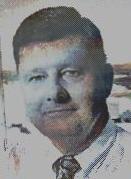A little known Sacramento company, Liberty Mortgage Acceptance Corporation, closed a $40 million loan last week on a prominent office building in Queens, N.Y.
It's the largest loan yet for the five-year-old company. And to put it in perspective, the loan dwarfs the amount any Sacramento bank would be allowed to lend. Liberty is one of the few companies based outside of New York that make and bundle commercial mortgage loans for sale to secondary markets. From its 7,000-square-foot office on the 23rd floor of 400 Capitol Mall, the privately held company employs 15, mostly former bank lenders. Liberty is a direct lender for all types of commercial real estate nationwide. The company could be based anywhere, but its president, Joseph Cunningham, chose Sacramento because he likes the city. Most of the company's executives are Californians, with banking backgrounds at Wells Fargo & Co., BankAmerica Corp. and First Interstate Bancorp. The big names in commercial mortgage-backed securities business are New York investment banks like Merrill Lynch & Co. and Morgan Stanley. "A lot of people don't like to deal with Wall Street. There's an arrogance level there," Cunningham said. "We think there's a great advantage to being outside of New York. Of course, we have to do a lot of work there, but we have a different perspective." Until now, Liberty's loans have averaged $8 million, and it generally doesn't touch anything for less than $3 million. The company since 1992 has been making loans in the relatively new field of commercial mortgage-backed securities. The company expects to fund about $200 million in loans this year."A lot of people don't like to deal with Wall Street. There's an arrogance level there."
"It was awful trying to get a commercial loan in the early '90's, and a lot of the banks still have conservative credit limits," Cunningham said. But by turning a bundle of loans into securities, the securities can be sold off to institutional investors such as pension funds and insurance companies. The investors buy the bundled loans as bonds rather than making loans themselves. They get the liquidity of the securities and the safety of diversification. "This all grew out of the Resolution Trust Corp.'s takeover of the failed (members of the) savings and loan industry," Monsma said. "The RTC was looking for a way to liquidate commercial mortgages, and it evolved into securitization." The $40 million Queens office building loan is part of a package of loans Liberty is pooling for a bond sale later this year, Cunningham said. The Queens loan in late June followed a $3.9 million first-mortgage loan on a Brooklyn, N.Y. office building in May and a $2.9 million first-mortgage loan on a Dixon, CA apartment complex. The company is about to make a $6 million loan on a Holiday Inn Hotel in northern Louisiana.

"We're a privately held company and we don't release profit or loss or revenue numbers," Cunningham said. The company's first bond offering was for $128 million in 1993. Since then, it participates in investment-grade bond offerings about twice a year.
